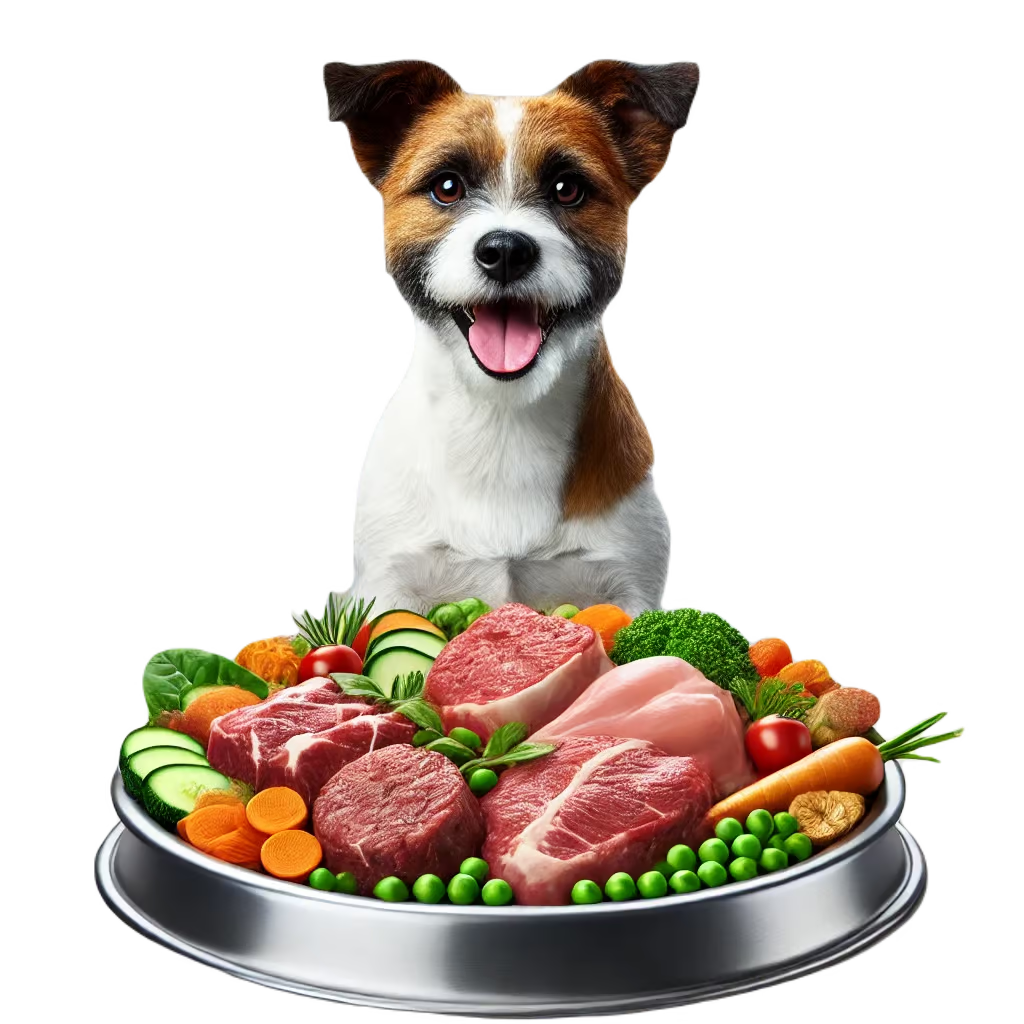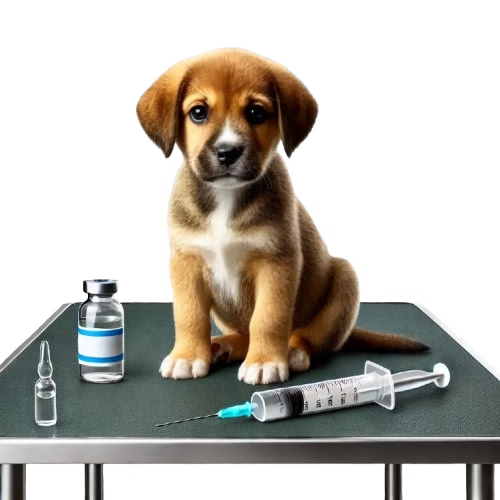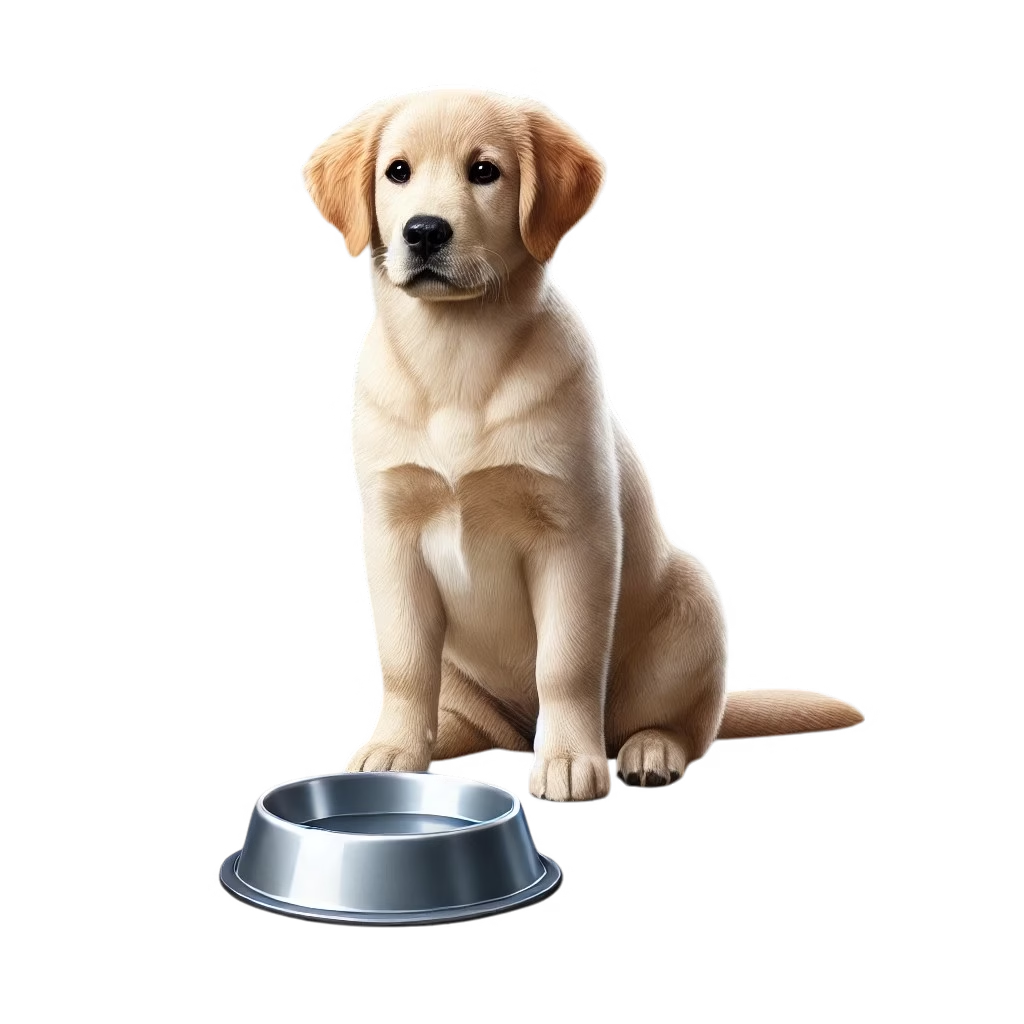How to feed your pup for a healthy, happy life
Proper nutrition is essential for your puppy’s health and development. In the first few months of life, a balanced diet helps build immunity, strength, and energy. This guide answers the most common questions about feeding puppies in a healthy and responsible way.

How often should I feed my puppy?
Feeding frequency depends on age:
- Up to 8 weeks: 4–6 meals per day
- 3 to 6 months: reduce to 3–4 meals per day
- From 6 months: 2–3 meals per day
- From 12 months: most adult dogs eat 1–2 meals daily
Stick to regular meal times to support digestion and establish routine.
How much should a puppy eat?
The right amount depends on your puppy’s breed, size, and activity level. Use feeding guides on food packaging as a starting point.
For home-prepared diets (cooked or raw):
- Feed roughly 3–4% of the expected adult body weight (if known), or
- About 10% of the current body weight (if adult weight is uncertain)
Tips:
- Always consult a vet or pet nutritionist when unsure
- Weigh your puppy regularly to track healthy growth
- Adjust portions if your puppy is very active or gains weight too fast
What should you feed a puppy?
Puppies need food specially formulated for their age and development. Options include:
- Dry food (kibble) – easy to store and portion, and often balanced with the right nutrients
- Wet food – more palatable for picky eaters, can be used on its own or mixed
- Home-prepared (raw or cooked) – potentially the healthiest and most natural option, but must be carefully balanced and guided by a vet or qualified nutritionist
Check the ingredients – avoid fillers, artificial colours, preservatives, and excess grains.
What else can puppies eat besides dog food?
Some fresh, natural foods can be healthy when given in moderation:
- Cooked meats – chicken, turkey, beef, or boneless fish
- Vegetables – carrots, pumpkin, sweet potato, courgette (lightly cooked)
- Fruits – apples (without seeds), bananas, or blueberries as treats
Always introduce new foods gradually to avoid digestive issues.
What foods are dangerous for puppies?
Some common foods are harmful or toxic to dogs:
- Chocolate – contains theobromine, which is poisonous
- Onions & garlic – can cause anaemia
- Grapes & raisins – may trigger kidney failure
- Cooked bones – can splinter and cause internal injury
- Heavily seasoned or fatty food – difficult to digest
- Avocado pits & macadamia nuts – toxic to dogs
- Artificial sweeteners (especially xylitol) – highly dangerous, even in small amounts
Stick to natural, dog-safe foods to avoid health risks.
Summary
Feeding your puppy correctly is vital for healthy growth and lifelong wellbeing. Stick to high-quality, age-appropriate food, feed regularly, and avoid harmful ingredients. When in doubt, always consult your vet or a certified pet nutritionist. Proper nutrition in the early months is an investment in your dog’s long-term health and happiness.

